Research Resident
Research is an integral part of the resident training experience at UCLA. All of our residents are expected and encouraged to participate in research throughout their residency. All residents have the opportunity to participate in clinical and/or laboratory investigations during their residency program. All residents are required to present their research during graduation as well as prepare at least one manuscript worthy of publication in a refereed journal. To complete these projects, we have many resources available to the residents. In fact, within the Department of Orthopaedic Surgery, there are bioengineers, molecular biologists, geneticists, specialists in tissue engineering, stem cell biologists, a kinesiologist, and computer experts to instruct and assist the residents in the preparation and analysis of their research projects.
Two residents from the second-year class elect to devote an additional year between their second and third year of clinical training for intensive basic science and clinical research. These residents have the opportunity to apply for a highly competitive NIH-funded T32 training grant to support their work. This allows our outstanding residents the unique opportunity of preparing themselves for an eventual career as a clinician-scientist. These research experiences have been highly productive, resulting in multiple peer review publications and federal funding.
See below our current and past research residents projects/interests:
2025-2026
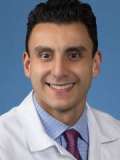
Dr. Christopher D. Hamad was awarded the NIH T32 Regenerative Musculoskeletal Medicine Training Grant to investigate the immunologic basis of periprosthetic joint infection (PJI) and implant-associated immunity. Under the mentorship of Dr. Nicholas Bernthal and Dr. Michael Yeaman, and with additional guidance from Dr. Karen Lyons and Dr. John Adams, his research focuses on characterizing the local immune microenvironment and synovial tissue surrounding infected implants using advanced murine models and immunologic techniques at both UCLA Westwood and Harbor-UCLA campuses, with the goal of identifying novel immunotherapeutic strategies to facilitate eradication of this devastating clinical problem. In parallel, Dr. Hamad is pursuing studies supported by the H&H Lee Surgical Research Scholars Grant to examine how cannabis exposure and GLP-1 receptor agonists influence fracture healing, antimicrobial immunity, and infectious burden. These projects are co-mentored by Dr. William Sheppard and Dr. Christopher Lee, and aim to inform perioperative counseling in orthopedic trauma and spine surgery by advancing our understanding of bone biology and host-pathogen interactions.
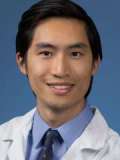
2024-2025
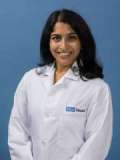
Dr. Mathangi Sridharan is spending her NIH T32-funded research year investigating endoprosthetic reconstruction after proximal humerus oncologic resection. Under the guidance of mentors Dr. Lauren Wessel (Division of Hand Surgery and Orthopaedic Oncology) and Professor Tyler Clites, PhD in the UCLA Anatomics Lab (Department of Mechanical Engineering and Department of Orthopaedic Surgery.), she is investigating upper extremity implant stability and compliance, and examining functional outcomes of upper extremity endoprosthesis. The goal of this collaborative effort is to facilitate clinical decision-making for patients with complex needs, as well as design shoulder and hand implants with longer lifespan and less wear.
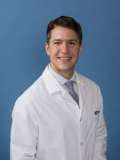
Dr. Thomas E. Olson was awarded the NIH T32-funded Regenerative Musculoskeletal Medicine Training Grant to study orthopaedic implant-associated infections in diabetic conditions. Thomas will be guided by mentors Dr. John Adams and Dr. Peter Butler, specialists in musculoskeletal medicine and diabetes, respectively, as well as Dr. Nicholas Bernthal with expertise in the basic science and clinical implications involved in periprosthetic infections. This project, additionally supported by the HH Lee research grant, focuses on understanding and mitigating these infections through a comprehensive animal model investigation. Diabetes significantly increases the risk of orthopaedic implant-associated infections due to its impact on microcirculation and immune response. The research aims to identify novel therapeutic strategies by examining the interplay between diabetes, metabolic syndrome, immune dysfunction, and orthopaedic implant infections. This work has the potential to significantly enhance clinical management of diabetic patients undergoing orthopaedic surgery, ultimately improving clinical and surgical outcomes while potentially combatting the growing population-level burden of periprosthetic infection on healthcare systems.
2023-2024
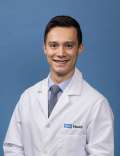
Dr. Brian Zukotynski is spending his research year investigating compliant mechanisms and how they can be applied to joint replacements. He is under the guidance of Professor Tyler Clites, PhD in the UCLA Anatomics Lab as a part of the Department of Mechanical Engineering and Department of Orthopaedic Surgery. His research project aims to design and test joint replacements built around compliant mechanisms. He is a NIH T32 research fellow and HH Lee research grant recipient. “Traditional joint replacements rely on components that rub against one another hundreds to thousands of times per day. Wear is inevitable and limits their lifespan,” says Dr. Zukotynski. “Compliant mechanisms are an opportunity to develop joint replacements that are less susceptible to wear and have a much longer lifespan.”
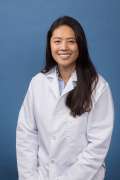
Dr. Nicole Newman-Hung is spending her NIH T32-funded research year investigating upper extremity soft tissue sarcoma. Under the guidance of mentors Dr. Lauren Wessel (Division of Hand Surgery and Orthopaedic Oncology), Dr. Nicholas Bernthal (Division of Orthopaedic Oncology), and collaborator Dr. William Hsu, PhD (Department of Radiological Sciences, Bioinformatics, and Bioengineering), she is developing a machine learning model for predicting local recurrence of upper extremity soft tissue sarcoma. The resultant predictive tool aims to facilitate a more patient-centered and comprehensive approach to multidisciplinary care coordination. Additionally, through the HH Lee research grant, Dr. Hung is investigating disparities in arthroplasty utilization with Dr. Lauren Wessel, Dr. Alexandra Stavrakis (Division of Arthroplasty), and collaborators from UCSF.
2022-2023
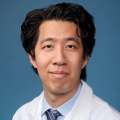
Dr. Daniel Chiou spent his research year helping to build and run an internal UCLA orthopedics clinical database. He was under the guidance of Dr. Nelson SooHoo and Dr. William Hsu in the department of orthopedic surgery and radiology respectively. He was awarded an NIH T32 Regenerative Musculoskeletal Medicine Training Grant and institutional H. H. Lee Research Grant for his work. From this clinical database, Daniel had conducted clinical studies in different orthopedic subspecialties including trauma, oncology, and shoulder/elbow.
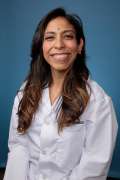
Dr. Jennifer Kallini spent her research year working primarily in the UCLA Kameron Gait and Motion Analysis Lab under the guidance and mentorship of Dr. Rachel Thompson and Dr. Kristen Stearns-Reider. Her main research project aims to better understand the four musculoskeletal manifestations of spastic cerebral palsy (CP): muscle stiffness, weakness, spasticity, and impaired selective motor control. While the degree of patient debility has been correlated with the severity of each of these four parameters, it remains unclear whether the parameters are correlated with one another. The purpose of Jennifer’s study was to investigate whether muscle stiffness, weakness, spasticity, and selective motor control impairment are correlated in CP, and to understand how the severity of each of these parameters affects patient function and overall satisfaction. Jennifer was awarded an NIH T32 Regenerative Musculoskeletal Medicine Training Grant and institutional H. H. Lee Research Grant for her work.
2021-2022
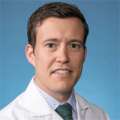
Dr. Alexander Upfill-Brown spent his research year investigating the application of compliant, or 'flexible,' mechanisms to knee and ankle reconstruction under the guidance of Professor Tyler Clites in the Department of Mechanical and Aerospace Engineering, and Dr. Nelson SooHoo and Dr. Alexandra Stavrakis in the Department of Orthopaedic Surgery. His project involved designing, analyzing and prototyping early concepts total knee reconstruction using CAD, finite element analysis and additive manufacturing. He also helped developed and test a large animal model for total ankle reconstruction. The overarching aim of this work is to reduce rates of aseptic loosening in orthopaedic joint reconstruction by eliminating articulation under load and subsequent particulate wear, as well as by reducing interfacial stresses at bone-implant or bone-cement interface. He has also conducted clinical research across a variety of orthopaedic subspecialties, including Spine (with Dr. Don Park and Dr. Elizabeth Lord), Trauma (with Dr. Christopher Lee) and Arthroplasty (with Dr. Alexandra Stavrakis and Dr. Adam Sassoon). Finally, during his research year he also participated in the UCLA Biodesign program, a unique multi-disciplinary experience focused on innovation and venture creation in the UCLA health system.
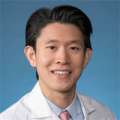
Dr. Brendan Shi spent his NIH T32-funded research year investigating novel methods of augmenting tendon-to-bone healing. Utilizing a murine Achilles repair model, his research project focused on demonstrating the targeting ability and biomechanical viability of a novel bisphosphonate chaperone. Future applications of this chaperone include conjugation to growth factors such as TGF-B or BMP-2 to provide targeted growth factor therapy to the site of tendon-to-bone healing, e.g. rotator cuff repairs. He is mentored by Dr. Thomas Kremen, a UCLA surgeon scientist in the division of Sports Medicine.